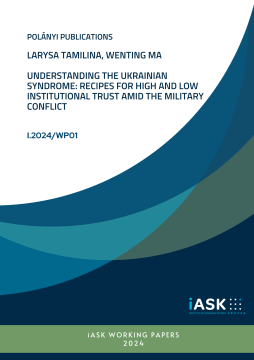Research & Studies
 About the Authors
About the Authors
Dr. Larysa Tamilina is an Associate Professor of Applied Statistics at the Kyiv School of Economics (Ukraine). She holds a Ph.D. from Bremen University (Germany) and an M.A. from the Catholic University of Leuven (Belgium). With a publication record exceeding 100 scientific and analytical works, her research primarily explores the interplay between formal institutions and economic growth. Her current studies focus on the Ukraine-Russia conflict, examining its ramifications for state- and nation-building in Ukraine.
Dr. Wenting Ma is an Assistant Professor of Finance at the Isenberg School of Management, University of Massachusetts Amherst. Her research focuses on finance labor, corporate finance, and innovation. Dr. Ma’s work has been published in reputable journals such as the Strategic Management Journal and The Review of Corporate Finance Studies.
Abstract
Conflicts generate profound shocks that destabilize political systems and erode the legitimacy of governing regimes. In the context of Ukraine, these adverse effects have taken on a distinct form, referred to here as the “Ukrainian Syndrome.” The phenomenon describes the paradoxical coexistence of a strong belief in the democratic regime with a significant distrust in the political institutions that uphold it. This study seeks to explain the Ukrainian Syndrome by examining the processes of institutional trust formation. The analysis is based on data from a nationally representative survey conducted in November 2024, utilizing fsQCA as the primary methodological framework. The findings reveal that individuals tend to base their trust in political institutions on pragmatic evaluations of institutional performance, largely disregarding ideological commitments to democracy or optimism about Ukraine’s long-term statehood in these assessments. As a result, Ukrainians’ aspirations for and commitment to democratic governance persist independently of their trust in democratic institutions.
Keywords: trust, institutions, democracy, Ukraine, fsQCA
I.2024/WP01